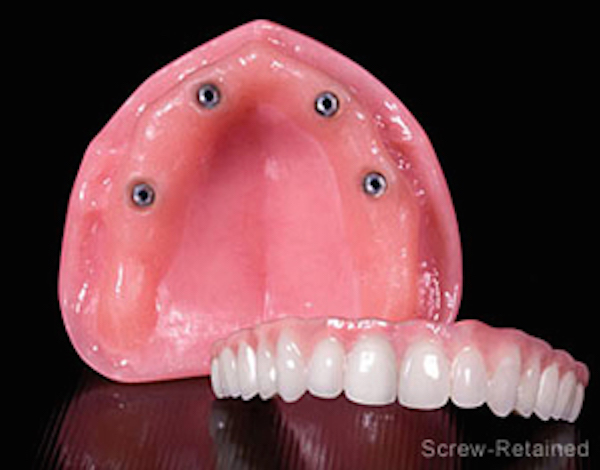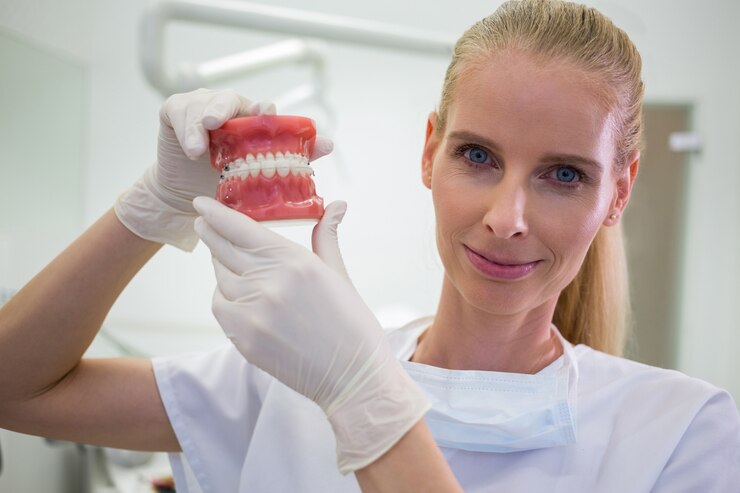Best Practices for Implant Denture Care in Edmonton: Tips for Longevity and Comfort

Implant dentures provide a reliable solution for restoring both smile aesthetics and dental function after tooth loss. Whether you have recently undergone implant-supported denture placement or are considering it, prioritizing proper care is essential for longevity, comfort, and oral health. These dentures are securely anchored to dental implants in the jawbone, offering stability that enhances chewing efficiency and speech while preventing bone loss. Daily care involves gentle brushing with a soft-bristled toothbrush and non-abrasive toothpaste, regular flossing around implant abutments, and rinsing with antimicrobial mouthwash to maintain cleanliness and reduce bacterial buildup. Regular dental check-ups every six months allow for monitoring of implant and gum health, ensuring early detection of any issues for prompt intervention. This guide explores the best practices for implant denture care in Edmonton with covering maintenance routines, hygiene tips, and common questions to help you maintain your dental health effectively. Following these practices diligently helps preserve the effectiveness of implant dentures, supporting long-term oral health and enhancing overall quality of life.
Understanding Implant-Supported Dentures
Implant-supported dentures are prosthetic teeth attached to dental implants surgically placed into the jawbone. Unlike traditional dentures, which rest on the gums, implant dentures are securely anchored to the implants, providing stability and preventing bone loss over time. This advanced dental solution not only improves chewing ability and speech but also enhances facial aesthetics and self-confidence.
Daily Care Routine for Implant Dentures
- Brushing: Use a soft-bristled toothbrush and non-abrasive toothpaste to clean your implant dentures at least twice a day. Brush gently to avoid damaging the denture or irritating the gums.
- Flossing: Although implant dentures are not susceptible to decay like natural teeth, it’s essential to clean around the implant abutments using interdental brushes or special floss recommended by your dentist.
- Rinsing: Rinse your mouth with water or an antimicrobial mouthwash after meals to remove food particles and bacteria that can accumulate around the dentures.
- Denture Cleaners: Use denture cleaners specifically designed for implant dentures to remove plaque and stains without damaging the prosthetic or the implants. Avoid abrasive cleaners that can scratch the denture surface.
Professional Care and Maintenance
Regular visits to your dentist in Edmonton are crucial for maintaining optimal oral health with implant dentures:
- Dental Check-ups: Schedule routine dental check-ups every six months or as recommended by your dentist. During these visits, your dentist will assess the condition of your implant dentures, check the integrity of the implants, and perform professional cleaning to remove stubborn plaque and tartar.
- X-rays: Periodic X-rays may be necessary to monitor the bone levels around the dental implants and ensure they remain stable.
- Adjustments and Repairs: If you experience discomfort, pain, or notice any issues with your implant dentures, such as loose fittings or cracks, contact your dentist immediately for adjustments or repairs.

Tips for Longevity and Comfort
- Avoid Hard Foods: Minimize chewing hard or sticky foods that can exert excessive pressure on the implant dentures and compromise their stability.
- Quit Smoking: Smoking can increase the risk of implant failure by impairing healing and causing inflammation around the implants. Quitting smoking can improve the long-term success of your implant dentures.
- Protect Your Dentures: When handling your implant dentures, place a soft towel or fill the sink with water to prevent them from accidentally falling and getting damaged.
- Follow Post-Operative Instructions: If you recently had implant surgery, follow your dentist’s post-operative instructions carefully to promote healing and reduce the risk of complications.
Conclusion
Adopting proper care practices and maintaining regular dental visits are crucial for the longevity and comfort of your implant dentures in Edmonton. By following these tips and addressing any concerns promptly, you can enjoy the benefits of a restored smile and improved oral function for years to come. Consult with your dentist for personalized advice on caring for your implant dentures and achieving optimal dental health.
Implementing these best practices ensures that your implant dentures not only enhance your appearance but also contribute to your overall well-being by supporting oral health and functionality.
FAQs
Q: Are implant dentures painful? A: Most patients report minimal discomfort during and after implant surgery, which is managed with pain medications as needed. With proper healing, any discomfort typically resolves quickly.
Q: How long do implant dentures last? A: With good care and regular dental visits, implant dentures can last 10-15 years or more. However, individual results may vary based on oral hygiene practices and overall health.
Q: Can I eat normally with implant dentures? A: Yes, implant dentures allow you to eat a wide variety of foods comfortably. It’s advisable to start with softer foods and gradually introduce harder textures as you adjust to the dentures.



